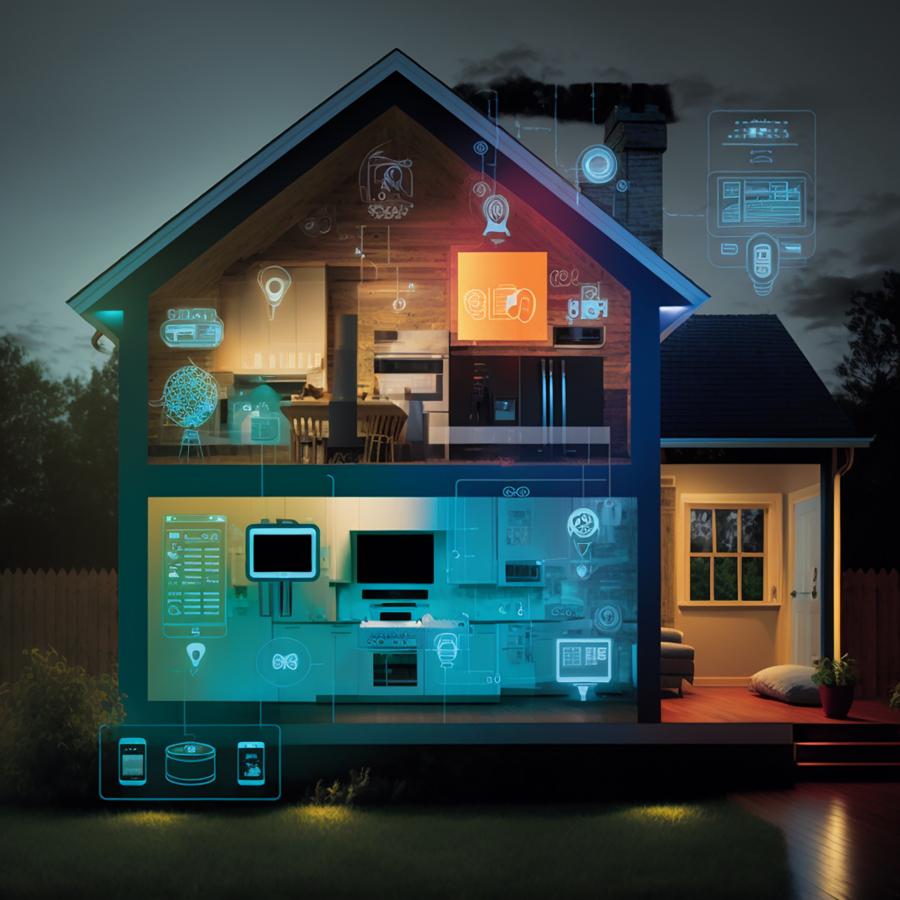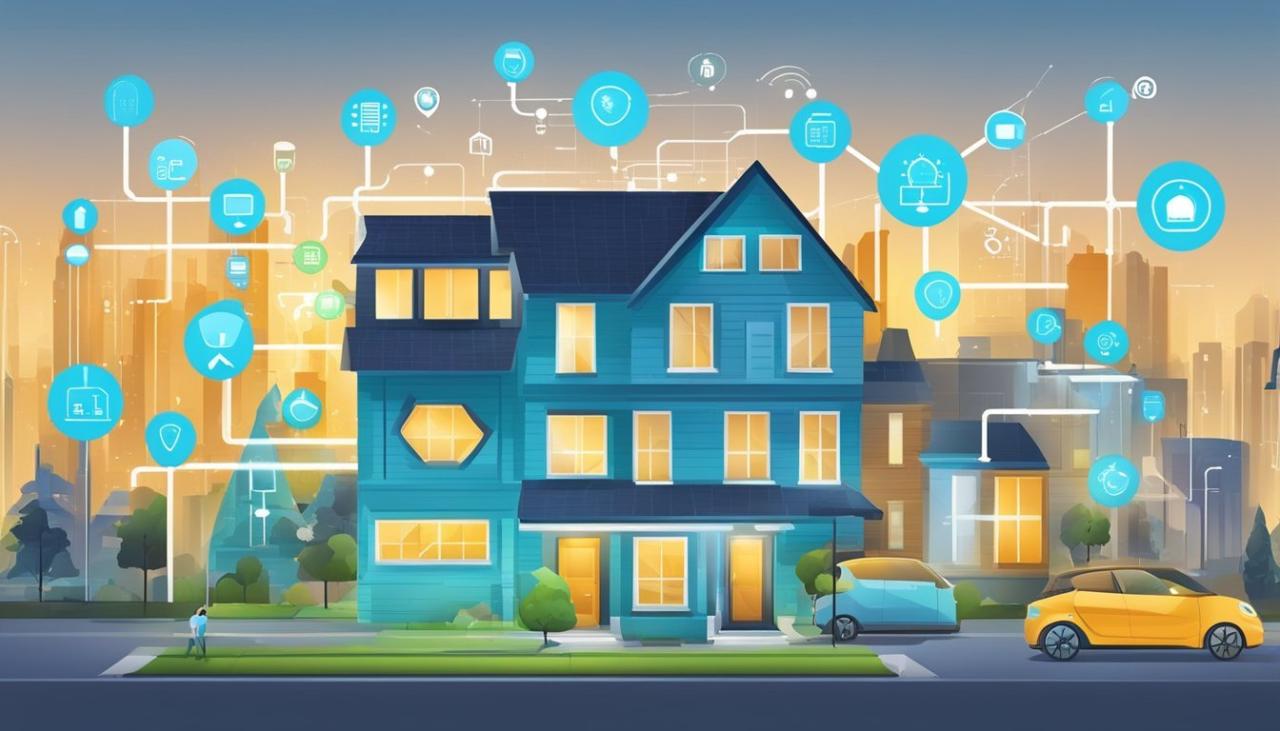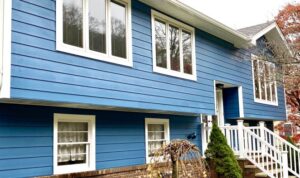In a world where technology continues to shape our daily lives, the impact of smart homes on daily life stands out as a fascinating subject. From streamlining routine tasks to enhancing energy efficiency, smart devices have revolutionized how we interact with our living spaces.
Let's delve into the realm of smart homes and explore the myriad ways they are transforming our daily routines.
Impacts on Daily Routine
Smart homes have revolutionized daily routines by streamlining tasks and increasing productivity. With the integration of smart devices, individuals can now automate various activities, saving time and effort in their daily schedules.
Enhanced Efficiency
Smart devices such as smart thermostats, lighting systems, and appliances allow users to control and monitor their homes remotely. For instance, setting up automated schedules for heating and cooling systems ensures optimal comfort without manual adjustments. This not only saves time but also reduces energy consumption, leading to cost savings in the long run.
Improved Productivity
The implementation of smart home technologies enables individuals to focus more on important tasks by delegating routine chores to automated systems. For example, robotic vacuum cleaners can clean floors independently, freeing up time for other activities. This increased efficiency contributes to a more productive daily routine, allowing individuals to accomplish more in less time.
Time Management
Automation plays a crucial role in managing daily schedules efficiently. Smart devices can remind users of appointments, deadlines, and tasks, ensuring that they stay organized and on track throughout the day. By reducing the cognitive load associated with remembering every detail, smart homes help individuals allocate their time effectively and prioritize tasks based on importance.
Energy Efficiency

Smart home technology plays a crucial role in energy conservation by enabling users to monitor and control their energy usage more effectively. This not only helps reduce energy waste but also leads to cost savings in the long run.
Comparison of Energy Consumption
In traditional homes, energy consumption is often higher due to inefficient systems and appliances. For example, heating and cooling systems may run continuously even when no one is home, leading to unnecessary energy usage. On the other hand, smart homes utilize sensors and automation to adjust settings based on occupancy and user preferences, resulting in more efficient energy use.
Cost Savings with Smart Devices
By using smart devices for energy management, homeowners can significantly reduce their utility bills over time. For instance, smart thermostats can learn the household's schedule and adjust temperatures accordingly, optimizing energy usage. Additionally, smart lighting systems can automatically turn off lights in unoccupied rooms, further saving electricity.
These small adjustments add up and contribute to substantial cost savings in the long term.
Security and Safety

Smart homes play a crucial role in enhancing security and safety measures for homeowners. With the integration of smart devices and advanced technology, individuals can feel more secure in their living spaces.
Enhanced Home Security
- Smart cameras and video doorbells allow homeowners to monitor their property remotely and receive alerts in real-time in case of any suspicious activity.
- Smart locks provide an added layer of security by allowing homeowners to control access to their homes through their smartphones, eliminating the risk of lost or stolen keys.
- Motion sensors and smart lighting systems can deter potential intruders by automatically turning on lights or sounding alarms when unexpected movement is detected.
Improved Safety Measures
- Smart smoke detectors and carbon monoxide alarms can quickly alert homeowners in case of a fire or gas leak, helping to prevent potential disasters.
- Smart thermostats can regulate temperature settings to prevent overheating or freezing, ensuring a safe and comfortable environment for residents.
- Water leak sensors can detect leaks early on, helping to prevent water damage and mold growth in the home.
Peace of Mind
- Advanced security features in smart homes provide homeowners with peace of mind, knowing that their property is protected even when they are away.
- The ability to monitor and control security systems remotely gives homeowners a sense of control and assurance over the safety of their loved ones and belongings.
- Knowing that their smart home is equipped with cutting-edge security technology can significantly reduce stress and anxiety related to home security concerns.
Connectivity and Communication

Smart homes revolutionize the way devices communicate and interact with each other, creating a seamless network within the household. This interconnectedness not only enhances convenience but also opens up a world of possibilities for automation and control.
Facilitating Seamless Connectivity
Smart home technology allows various devices and appliances to communicate with each other through a central hub or network. For example, a smart thermostat can adjust the temperature based on motion sensors detecting occupancy, or a smart refrigerator can create shopping lists based on inventory levels.
This level of connectivity streamlines daily tasks and enhances the overall efficiency of the household.
Impact on Communication within the Household
In a smart home environment, communication among family members can also be improved. For instance, smart speakers or intercom systems can be used to send messages to different rooms, schedule reminders, or even make announcements. This not only fosters better communication but also promotes a sense of unity and coordination within the household.
Importance of Network Reliability
The reliability of the network infrastructure is crucial for the smooth operation of smart home systems. Any disruptions in connectivity can lead to malfunctions in automation processes, security vulnerabilities, or even loss of control over devices. Therefore, investing in a stable and secure network is essential to ensure the seamless operation of smart home technology.
Last Point
As we conclude our exploration of the impact of smart homes on daily life, it becomes evident that these technological advancements have not only revolutionized our homes but also our lifestyles. Embracing the convenience, efficiency, and security offered by smart devices opens up new possibilities for how we experience and interact with our living spaces.
The future of smart homes is bright, promising a world where connectivity and innovation seamlessly blend to enhance our daily lives.
FAQ Explained
How do smart homes streamline daily tasks?
Smart homes streamline daily tasks through automation, allowing for remote control of various devices such as thermostats, lighting, and appliances.
What are the long-term cost savings of using smart devices for energy management?
Smart devices help reduce energy consumption, leading to lower utility bills over time and contributing to long-term cost savings.
How do smart homes enhance home security?
Smart homes enhance security through features like smart locks, security cameras, and motion sensors that provide real-time monitoring and alerts.
What is the impact of smart home technology on communication within the household?
Smart home technology fosters improved communication within households by enabling voice command systems, intercom features, and remote access to messaging devices.
Why is network reliability important in smart home systems?
Network reliability is crucial in smart home systems to ensure seamless connectivity among devices and uninterrupted access to smart features.






